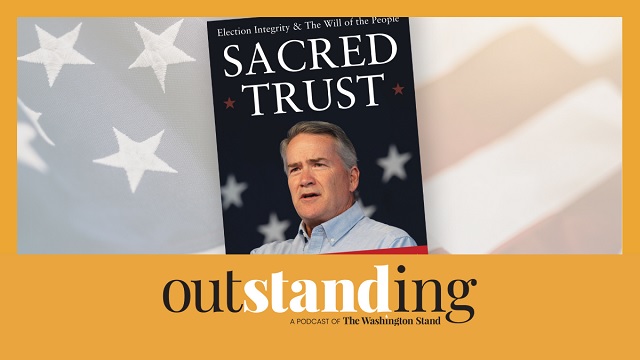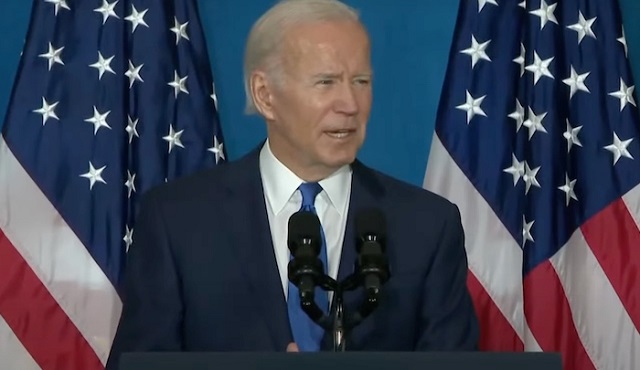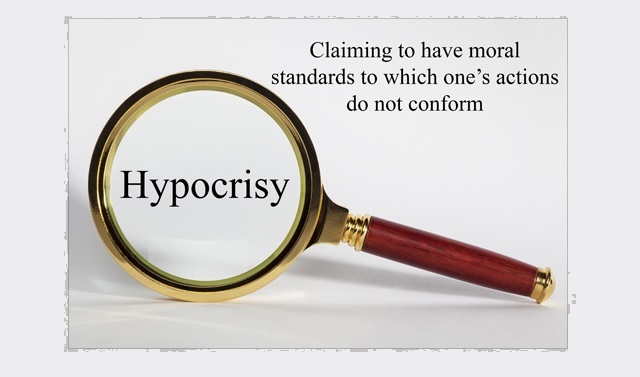
Misinformation is false or inaccurate information, especially that which is deliberately intended to deceive.
Disinformation is a subset of propaganda and is defined as false information that is spread deliberately to deceive people.
Malinformation or malicious information is having or showing a desire to cause harm to someone; given to, marked by, or arising from malice or malicious gossip.
In this Misinformation Watch article to expose mis, dis and malinformation we look at Rob Reiner, Mia Farrow and Nancy Sinatra.
As JFK said,
The great enemy of truth is very often not the lie – deliberate, contrived, and dishonest, but the myth – persistent, persuasive, and unrealistic.
Rob Reiner and Nancy Sinatra
Rob Reiner in a tweet said that Republicans don’t respect women.
Nancy Sinatra agreed with Reiner and said she does not understand why any women are Republicans: “Yes, I have thought that for decades, and it’s beyond my comprehension why a woman, any woman would be a republican. Ever – unless she can’t read.”
Another woman tweeted this in response to Rob Reiner’s tweet:
This idea of women and respect is classic disinformation. It is a myth that supports the liberal ideal of mothers murdering their babies. Abortion is the bedrock of the Biden administration and those like Rob Reiner, Nancy Sinatra and Melissa Rosenstock who want others to believe that if you do not believe in mothers killing their unborn babies then you “hate” women.
Here’s the reality of abortion on the black community:
- Abortion is the leading cause of death for African Americans, more than all other causes combined, including HIV, violent crimes, accidents, cancer, and heart disease.
- Abortions are performed on black women at a rate 3.5 times higher than white women; black women have over 30 percent of abortions though they are only 12.6 percent of the population.
- Over their lifetimes, black women average 1.6 more pregnancies than White women but are 5 times more likely to have a pregnancy that ends in abortion.
- Approximately 360,000 pre-born black babies are aborted every year, nearly 1000 per day.
- More than 16-million black babies have died by abortion since 1973.
- The percentage of the black population in the U.S. has dropped from 12.6 percent in 2010 to 12.4 percent in 2020. The black population in the U.S. (41 million) has dropped precipitously below the Hispanic population (63 million), numbers that would be radically different had 16 million black lives mattered enough to society to protect them from abortion and raise them to fruitful adulthood.
You see it’s not Republicans who created the baby formula shortage, it is Biden and his administration. If mothers can’t get baby formula their babies’ heath is put at risk. So, ipso facto it is Democrats who hate women, particularly mothers with children.
What those who are against abortion are for mothers having their babies but if they don’t want or can’t support their babies give the baby away to another woman and mother who will take care of them.
Abortion is a zero sum game for the unborn. It is either life or death.
Democrats want death. Republicans want life and more and more babies born healthy, happy and ultimately good and prosperous citizens.
Abortion is a form of genocide particularly of minorities. You see if abortion is done away with then more black and Hispanic babies would be born. Democrats can’t have that happen, can they?
Democracy or Constitutional Republic
The Founding Fathers created via the U.S. Constitution a Republic. Their goal was to remove themselves from the aristocracy of the King of England and become free men by limiting the powers of the central government. The U.S. Constitution limits the role of the federal government and given each state powers over everything else that is not constitutionally allowed. The federal governments powers are limited and the states are empowered. America is the only nation with a Constitutional Republican form of government.
Finally Rob Reiner tweeted the following:
America is not a democracy it is a Constitutional Republic. John Adams, in The Letters of John and Abigail Adams, wrote:
“I do not say that democracy has been more pernicious on the whole, and in the long run, than monarchy or aristocracy. Democracy has never been and never can be so durable as aristocracy or monarchy; but while it lasts, it is more bloody than either. … Remember, democracy never lasts long. It soon wastes, exhausts, and murders itself.”
Rob Reiner and Democrats want to establish an a democracy where the majority rule and the minority obey. Democracy is worse than either an aristocracy or monarchy. Biden and his administration is feverishly working to turn America into a democracy, which is now wasting its people, exhausting itself in debt and murdering future generations via abortion.
Adams warned:
“It is in vain to say that democracy is less vain, less proud, less selfish, less ambitious, or less avaricious than aristocracy or monarchy. It is not true, in fact, and nowhere appears in history. Those passions are the same in all men, under all forms of simple government, and when unchecked, produce the same effects of fraud, violence, and cruelty. When clear prospects are opened before vanity, pride, avarice, or ambition, for their easy gratification, it is hard for the most considerate philosophers and the most conscientious moralists to resist the temptation. Individuals have conquered themselves. Nations and large bodies of men, never.”
Mia Farrow
Sharia Law applies to the followers of Mohammed. Muslims believe that women are necessary but must be controlled. Sura 33:59 of the Qu’ran reads,
“O Prophet! tell thy wives and daughters, and the believing women, that they should draw over themselves some of their outer garments (when in public): that is most convenient, that they should be known (as decent women) and not annoyed.
Wearing a full covering over their bodies is a symbol of obedience to Allah. Muslim groups like the Islamic State and the government of Afghanistan have firmly implemented this Sura.
Responding to Reiner’s tweet Mia Farrow tweeted that Republicans “would be happy to impose Sharia laws [on women].”
They’d be happy to impose Sharia laws
— Mia Farrow?? (@MiaFarrow) May 12, 2022
Here’s a Mia Farrow tweet this in June of 2015
Remember that on March 20th, 1854 in Ripon, Wisconson the Republican Party was founded on the platform to end slavery. Former members of the Whig Party met to establish a new party to oppose the spread of slavery into the Western territories. According to History.com:
The Republicans rapidly gained supporters in the North, and in 1856 their first presidential candidate, John C. Fremont, won 11 of the 16 Northern states. By 1860, the majority of the Southern slave states were publicly threatening secession if the Republicans won the presidency. In November 1860, Republican Abraham Lincoln was elected president over a divided Democratic Party, and six weeks later South Carolina formally seceded from the Union. Within six more weeks, five other Southern states had followed South Carolina’s lead, and in April 1861 the Civil War began when Confederate shore batteries under General P.G.T. Beauregard opened fire on Fort Sumter in South Carolina’s Charleston Harbor.
Here is a recent article about a Muslim family:
A federal jury convicted a family in Richmond, VA of holding a Pakistani woman in forced servitude for 12 years, the Department of Justice recently announced.
Zahida Aman, Mohammad Nauman Chaudhri and Mohammad Rehan Chaudhri will face sentencing for conspiracy to commit forced labor. In addition, the jury convicted Aman of forced labor and document servitude, and defendant Rehan Chaudhri of forced labor….
Aman is said to be 80 and her son Mohammad Nauman is 54 and her other son Mohammad Rehan is 48….
One neighbor called news of the conviction disturbing. The Jones family told WRIC it never suspected or witnessed any abuse inside the home.
According to WTVR, the victim was related by marriage. Prosecutors say they kept her as a slave. True Crime reports the mother arranged the marriage between the victim and a third son who also lived in the home. Two years later, that son moved to California, but his wife stayed behind. They had four children together who lived in Virginia.
Robert Spencer quotes those passages in the Qur’an that allow for human slaves:
Slavery is acceptable in Islam. The Qur’an has Allah telling Muhammad that he has given him girls as sex slaves: “O prophet, indeed, we have made lawful to you your wives to whom you have paid their dowries, and those whom your right hand possesses of those whom Allah has given you as spoils of war.” (Qur’an 33:50)
Muhammad bought slaves: “Jabir (Allah be pleased with him) reported: There came a slave and pledged allegiance to Allah’s Apostle (may peace be upon him) on migration; he (the Holy Prophet) did not know that he was a slave. Then there came his master and demanded him back, whereupon Allah’s Apostle (may peace be upon him) said: Sell him to me. And he bought him for two black slaves, and he did not afterwards take allegiance from anyone until he had asked him whether he was a slave (or a free man).” (Muslim 3901)
Muhammad took female Infidel captives as slaves: “Narrated Anas: The Prophet offered the Fajr Prayer near Khaibar when it was still dark and then said, ‘Allahu-Akbar! Khaibar is destroyed, for whenever we approach a (hostile) nation (to fight), then evil will be the morning for those who have been warned.’ Then the inhabitants of Khaibar came out running on the roads. The Prophet had their warriors killed, their offspring and woman taken as captives. Safiya was amongst the captives. She first came in the share of Dahya Alkali but later on she belonged to the Prophet. The Prophet made her manumission as her ‘Mahr.’” (Bukhari 5.59.512) Mahr is bride price: Muhammad freed her and married her. But he didn’t do this to all his slaves:
Muhammad owned slaves: “Narrated Anas bin Malik: Allah’s Apostle was on a journey and he had a black slave called Anjasha, and he was driving the camels (very fast, and there were women riding on those camels). Allah’s Apostle said, ‘Waihaka (May Allah be merciful to you), O Anjasha! Drive slowly (the camels) with the glass vessels (women)!’” (Bukhari 8.73.182) There is no mention of Muhammad’s freeing Anjasha.
What is most interesting is that Mia doesn’t tell you is the history of Arabs who are currently holding elected positions in the U.S. House of Representatives and their religious affiliations.
If Mia is worried about Shariah law coming to America she needs to look at the beliefs of Ilhan Omar and Rashida Tlaib, who recently put forward the Palestinian Nakba resolution condemning the Jewish state of Israel.
Here’s the most current list of U.S. Representatives and their religious affiliations from Wikipedia.
House of Representatives
 |
Garret Graves
(born 1972) |
Lebanese Roman Catholic |
Republican |
Louisiana |
January 3, 2015 |
Incumbent |
|
 |
Darin LaHood
(born 1968) |
Lebanese Catholic |
Republican |
Illinois |
September 10, 2015 |
Incumbent |
|
 |
Charlie Crist
(born 1956) |
Lebanese Methodist |
Democratic |
Florida |
January 3, 2017 |
Incumbent |
|
 |
Rubén Kihuen
(born 1980) |
Lebanese Catholic |
Democratic |
Nevada |
January 3, 2017 |
January 3, 2019 |
Retired |
 |
Debbie Mucarsel-Powell
(born 1971) |
Lebanese Catholic |
Democratic |
Florida |
January 3, 2019 |
January 3, 2021 |
Lost reelection |
 |
Ilhan Omar
(born 1981) |
Somali Muslim |
Democratic |
Minnesota |
January 3, 2019 |
Incumbent |
|
|
 |
Rashida Tlaib
(born 1976) |
Palestinian Muslim |
Democratic |
Michigan |
January 3, 2019 |
Incumbent |
|
 |
Stephanie Bice
(born 1973) |
Iranian Christian Catholic |
Republican |
Oklahoma |
January 3, 2021 |
Incumbent |
©Dr. Rich Swier. All rights reserved.
RELATED ARTICLE: ‘Pools Of Blood’: Authorities Shut Down Abortion Clinic For Endangering Patients
























